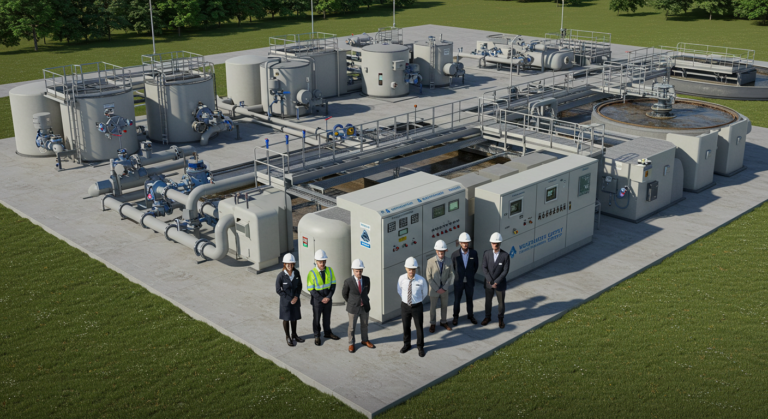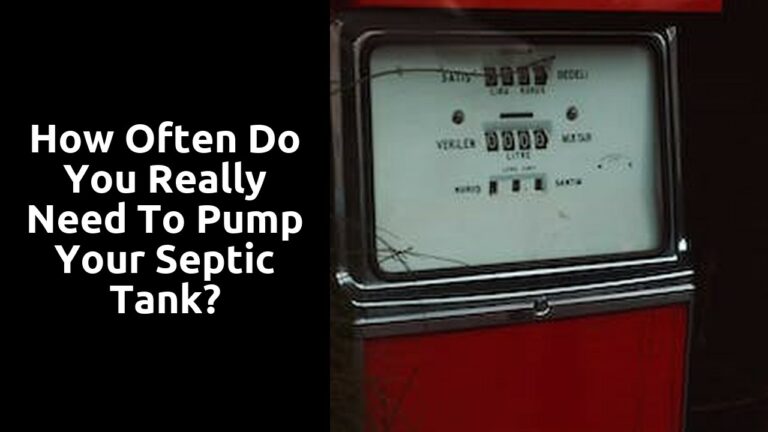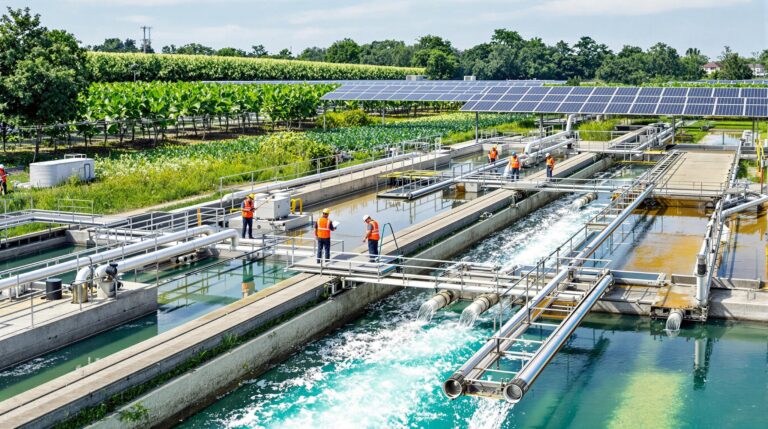Case Studies: Successful Implementation of Submersible Septic Pumps in Various Environments.
When it comes to managing wastewater efficiently, submersible septic pumps are indispensable. Their ability to operate underwater, coupled with their robustness, makes them an excellent choice for a range of environments. In this blog post, we’ll delve into several case studies that highlight the successful implementation of submersible septic pumps in various settings. These real-world examples will not only demonstrate the effectiveness of these pumps but also provide valuable insights for those considering their use.
Understanding Submersible Septic Pumps
Before we dive into the case studies, it’s essential to understand what submersible septic pumps are and how they function. These pumps are designed to be placed directly into the septic tank, where they handle the task of moving wastewater from the tank to a drain field or sewer system. They are built to withstand harsh conditions, including complete submersion in liquid, and are often equipped with robust motors that ensure reliable performance.
Key Features of Submersible Septic Pumps
- Durability: Made from corrosion-resistant materials to withstand harsh environments.
- Efficiency: Designed to operate continuously, efficiently moving wastewater.
- Low Maintenance: Minimal maintenance required due to the design and materials used.
Case Study 1: Rural Residential Use
In rural areas, septic systems are the norm, as access to municipal sewer systems is often limited. One of our clients, a homeowner in a remote location, faced constant issues with their traditional septic system. Frequent blockages and overflows were not only inconvenient but also posed health risks.
Solution: We installed a submersible septic pump specifically designed for residential use. The pump’s high-performance motor and clog-resistant design ensured continuous operation, even with varying waste loads.
Outcome: The homeowner reported a significant reduction in blockages and overflows. The submersible pump operated flawlessly, handling the household’s wastewater needs with ease. Maintenance was minimal, and the overall reliability of the system improved dramatically.
Case Study 2: Commercial Application in Restaurants
Restaurants generate a substantial amount of wastewater, including grease and food particles, which can be challenging for septic systems to handle. A popular restaurant in a busy urban area struggled with frequent septic system failures, leading to costly repairs and downtime.
Solution: We recommended and installed a submersible septic pump with a grinder feature. This type of pump is designed to handle solid waste and break it down into smaller particles, preventing clogs and ensuring smooth operation.
Outcome: The restaurant experienced immediate improvements. The grinder pump effectively managed the heavy waste load, including grease and food scraps. Since the installation, there have been no system failures, and the restaurant has enjoyed uninterrupted operations. The management was particularly pleased with the cost savings on repairs and the increase in overall efficiency.
Case Study 3: Agricultural Setting
Farms and agricultural operations often require robust wastewater management systems due to the high volume of waste generated by livestock and other activities. One farm faced persistent issues with their septic system, which struggled to handle the large quantities of waste and led to environmental concerns.
Solution: We installed a heavy-duty submersible septic pump designed for agricultural use. This pump featured a high-capacity motor and was capable of handling large volumes of waste with ease.
Outcome: The farm saw immediate benefits. The new pump managed the high waste volumes efficiently, reducing the risk of overflows and environmental contamination. The farmers reported fewer maintenance issues and were able to focus more on their core activities without worrying about their septic system.
Submersible septic pumps are crucial for effective wastewater management in various environments, from rural homes to bustling restaurants and large farms. These pumps are designed to handle the most demanding conditions, providing reliable and efficient service with minimal maintenance. By choosing the right submersible septic pump, homeowners, business owners, and farmers can ensure smooth operation and prevent costly repairs and downtime. Investing in a high-quality submersible septic pump not only enhances the performance of your septic system but also contributes to a cleaner and safer environment. Whether you need a pump for residential, commercial, or agricultural use, the right choice can make all the difference.
Case Study 4: Industrial Use
Industrial facilities often generate significant amounts of wastewater that require efficient handling. A manufacturing plant faced ongoing issues with its outdated septic system, which could not cope with the volume and type of waste produced.
Solution: We installed a submersible septic pump with advanced features, including a high-powered motor and reinforced components to handle industrial waste.
Outcome: The manufacturing plant reported a drastic improvement in their wastewater management. The new pump operated smoothly, handling the large waste volumes without any issues. The plant’s maintenance team noted the ease of upkeep and the pump’s durability, which significantly reduced downtime and maintenance costs.
Conclusion
These case studies illustrate the versatility and effectiveness of submersible septic pumps across different environments. Whether for residential, commercial, agricultural, or industrial use, the right pump can transform wastewater management, offering reliability, efficiency, and cost savings. By understanding the specific needs of each environment and selecting the appropriate pump, users can ensure optimal performance and long-term satisfaction.
Informative List
- Rural Residential Use: Addressing blockages and overflows with durable residential pumps.
- Commercial Application in Restaurants: Managing grease and food waste with grinder pumps.
- Agricultural Setting: Handling high volumes of waste in farming operations.
- Industrial Use: Coping with significant wastewater volumes in manufacturing plants.
For those considering upgrading their septic systems, it’s crucial to consult with experts who can recommend the best submersible septic pump for your specific needs. At Septicpumps, we are dedicated to providing top-quality solutions tailored to meet the unique challenges of any environment. Invest in a submersible septic pump today and experience the difference in performance and reliability.
With these real-world examples, it’s clear that submersible septic pumps offer a robust solution for diverse wastewater management needs. If you have any questions or need assistance in choosing the right pump, feel free to contact us. We’re here to help ensure your septic system operates efficiently and effectively for years to come.



